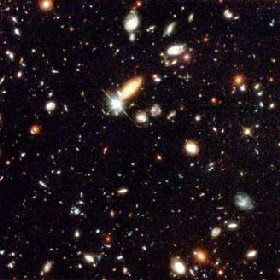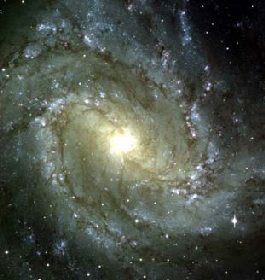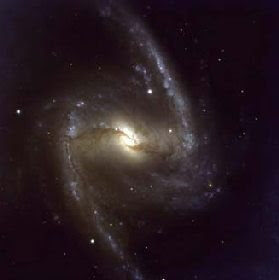A famous person once state:
“When understanding of the universe has become widespread…Christian doctrine will be convicted of absurdity.”
In this segment we will consider various statements regarding the pre-Big-Bang scenario and consider whether it is a scientific, metaphysic, philosophic, theological issue or some combination thereof. In Part II we will discuss pre-Big-Bang speculation which will include the concept of the multi-verse.
Cosmologist Andrei Linde:
“The most difficult aspect of this problem is not the existence of the singularity itself, but the question of what was before the singularity….This problem lies somewhere at the boundary between physics and metaphysics.”1
From the journal Nature:
“The biggest problem with the Big Bang theory of the origin of the universe is philosophical – perhaps even theological – what was there before the bang? This problem alone was sufficient to give great impetus to the Steady State theory. But with that theory now sadly in conflict with the observations, the best way around this initial difficulty is provided by a model in which the universe expands from a singularity, collapses back again, and repeats the cycle indefinitely.”2

From the journal Scientific America:
“…many scientists, particularly in Britain, liked the simplicity of the steady state theory and so continued to cling to the concept. They pointed out that one did not have to make arbitrary assumptions about a big bang or worry about what happened before the big bang.”3
From the journal Science:
“Cosmologist Michael Turner of the University of Chicago recently coined the rule that, in a cosmological theory, you can’t invoke the tooth fairy twice. His tooth fairy is not a mystical being replaces lost teeth with quarters, but any wild, whimsical assumption dreamed up to answer some problem. In a field like cosmology, where the questions are vast and data scarce, you would expect to have to summon a tooth fairy from time to time.
But today, to hear many cosmologists talk, the population of tooth fairies is exploding. ‘In some of the newer theories, we are inventing a new physical principle for every new observational fact,’ complains astronomer Marc Davis of the University of California, Berkley…The field of cosmic structure is opening up to creative speculation.”4
From the journal Nature:
“Apart from being philosophically unacceptable, the Big Bang is an over-simplified view of how the Universe began, and it is unlikely to survive the decade ahead [this was written in 1989]…In all respects save that of convenience, this view of the origin of the Universe is thoroughly unsatisfactory. For one thing, the implication is that there was an instant at which time literally began and, so, by extension, an instant before which there was no time. That in turn implies that even if the origin of the Universe may be successfully supposed to lie in the Big Bang, the origin of the Big Bang itself is not susceptible to discussion.
It is an effect whose cause cannot be identified or even discussed. Even the notion that the present appearance of the Universe may represent but one cycle in the oscillation of a Universe whose total mass in enough to hold it together gravitationally (which seems unlikely) would not resolve the philosophical difficulty that an important issue, that of the ultimate origin of our world, cannot be discussed.”5
J. Richard Gott III, James E. Gunn, David N. Schramm, and Beatrice M. Tinsley note:
“the universe began from a state of infinite density about one Hubble time ago. Space and time were created in that event and so was all the matter in the universe. It is not meaningful to ask what happened before the big bang; it is somewhat like asking what is north of the North Pole. Similarly, it is not sensible to ask where the big bang took place. The point-universe was not an object isolated in space; it was the entire universe, and so the only answer can be that the big bang happened everywhere.”6
 Regarding the scientific discovery that evidences that the universe had a beginning, Prof. Robert Jastrow wrote (the late Prof. Jastrow was the Chief of the Theoretical Division of NASA and Founder/Director of NASA’s Goddard Institute; Professor of Geophysics at Columbia University; Professor of Space Studies-Earth Sciences at Dartmouth College):
Regarding the scientific discovery that evidences that the universe had a beginning, Prof. Robert Jastrow wrote (the late Prof. Jastrow was the Chief of the Theoretical Division of NASA and Founder/Director of NASA’s Goddard Institute; Professor of Geophysics at Columbia University; Professor of Space Studies-Earth Sciences at Dartmouth College):
“Theologians generally are delighted with the proof that the Universe had a beginning, but astronomers are curiously upset. Their reactions provide an interesting demonstration of the response of the scientific mind-supposedly a very objective mind-when evidence uncovered by science itself leads to a conflict with the articles of faith in our profession. It turns out that the scientist behaves the way the rest of us do when our beliefs are in conflict with the evidence. We become irritated, we pretend the conflict does not exist, or we paper it over with meaningless phrases….some prominent scientists began to feel the same irritation over the expanding Universe that Einstein had expressed earlier. [English astronomer Arthur] Eddington wrote in 1931, ‘I have no axe to grind in this discussion,’ but ‘the notion of a beginning is repugnant to me…I simply do not believe that the present order of things started off with a bang…the expanding Universe is preposterous…incredible…it leaves me cold.’The German chemist, Walter Nernst, wrote, ‘To deny the infinite duration of time would be to betray the very foundation of science.’More recently, Phillip Morrison of MIT said in a BBC film on cosmology, ‘I find it hard to accept the Big Bang theory; I would like to reject it.’And Allan Sandage of Palomar Observatory, who established the uniformity of the expansion of the Universe out to nearly ten billion light years, said, ‘It is such a strange conclusion…it cannot really be true’…Einstein wrote, ‘The scientist is possessed by the sense of universal causation.’
This religious faith of the scientist is violated by the discovery that the world had a beginning under conditions in which the known laws of physics are not valid, and as a product of forces or circumstances we cannot discover. When that happens, the scientist has lost control. If he really examined the implications, he would be traumatized.”7
Prof. Robert Jastrow further stated:
“For the scientist who has lived by his faith in the power of reason, the story ends like a bad dream. He has scaled the mountains of ignorance; he is about to conquer the highest peak; as he pulls himself over the final rock, he is greeted by a band of theologians who have been sitting there for centuries….the astronomical evidence leads to a biblical view of the origin of the world. The details differ, but the essential elements in the astronomical and biblical accounts of Genesis are the same: the chain of events leading to man commenced suddenly and sharply at a definite moment in time, in a flash of light and energy.
Some scientists are unhappy with the idea that the world began in this way. Until recently [this was written in 1978] many of my colleagues preferred the Steady State theory, which holds that the Universe had no beginning and is eternal. But the latest evidence makes is almost certain that the Big Bang really did occur.”8
Marin Rees wrote about his mentor Dennis Sciama’s adherence to the Steady State Theory:
“For him, as for its inventors, it had a deep philosophical appeal-the universe existed, from everlasting to everlasting, in a uniquely self-consistent state. When conflicting evidence emerged, Sciama therefore sought a loophole (even an unlikely seeming one) rather as a defense lawyer clutches at any argument to rebut the prosecution case.”9
Dennis Sciama himself has stated:
“For me the loss of the Steady State theory has been a cause of great sadness. The steady state theory has a sweep and beauty that for some unaccountable reason the architect of the universe appears to have overlooked.”
10Sir Fred Hoyle noted:
“This most peculiar situation is taken by many astronomers to represent the origin of the universe. The universe is supposed to have begun at this particular time. From where? The usual answer, surely an unsatisfactory one, is: from nothing!”11
 Robert Dicke was pleased about the concoction of the Steady State Theory since it:
Robert Dicke was pleased about the concoction of the Steady State Theory since it:
“relieve us of the necessity of understanding the origin of matter at any finite time in the past.”12
Bertrand Russell’s erudite elucidation of this matter was expressed thusly,
“The universe is just there, and that’s all.”13
Sir Arthur Stanley Eddington wrote,
“This is a topic on which science is silent, and all that one can say is prejudice.” 14
Hannes Alfven, Nobel Laureate for Physics and Honorary Member of the European Geophysical Society, wrote,
“We beg leave to side step the question, ‘What happened before then?’”15
John Post wrote,
“by definition the universe contains everything there is or ever was or will be.”16
Carl Sagan stated,
“The cosmos is all there is or ever was or ever will be.”17
Oh yes, the statement with which this essay began was made by Adolf Hitler.18
Find the follow up here: In the Beginning…Cosmology, Part II – Book, Chapter and Multi-Verse
~~~~~~~~~~~~~~~~~~~~~~~~
A plea: I have to pay for server usage and have made all content on this website free and always will. I support my family on one income and do research, writing, videos, etc. as a hobby. If you can even spare $1.00 as a donation, please do so: it may not seem like much but if each person reading this would do so, even every now and then, it would add up and really, really help out. Here is my donate/paypal page.
Due to robo-spaming, I had to close the comment sections. However, you can comment on my Twitter
page, on my Facebook page, on my Google+ page and/or the “Share/Save” button below the tags.
